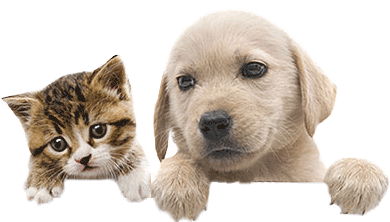Dog-human link is similar to that of parent-child
By Lindsay Friedman, USA Today, 30 July 2013
The bond between humans and dogs has been going strong for thousands of years, and according to a new study, the relationship is similar the deep connection between parent and child.
There's no denying the close bond between dogs and their owners: It has been going strong for at least 20,000 years, says John Bradshaw, a biologist and director of the Anthrozoology Institute at the University of Bristol's School of Clinical Veterinary Science in England and author of Dog Sense.
But new research is showing the relationship could be even more significant, so much so that it may be similar to that of a parent and child. Ask a child to complete a task with a stranger nearby, and you may reach a limited level of success. Ask that child to complete the same task with a parent nearby, and you may observe the "secure-base effect," when a child completes the task with more confidence because a trusted parent is close by.
Such were the findings of a new study led by Lisa Horn, a fellow at Messerli Research Institute's Unit of Comparative Cognition in Vienna. Her team examined dogs' performance in a task under three conditions: with the owner absent, with the owner offering encouragement and with the owner silent, to assess the potential secure-base effect owners had on their furry friends.
The study, involving 22 dogs and their owners, rewarded the animals with food after playing with toys. Whether the owner was encouraging or silent had little effect on the animal's motivation to earn a few treats. However, when placed with a stranger, the dogs were much less motivated than when their owners were in the room. As a result, specialists concluded that the owner's presence is important if the animals are to behave in a confident manner, similar to that of a child's tendencies when their parents are nearby.
"It can easily be imagined that a similar lack of security could also affect other aspects of dogs' lives, like their willingness and motivation to participate in dog training," Horn says.
Though the study found dogs' behavior similar to that of a child, Horn added it doesn't mean the two are similar in every way.
"In many aspects dogs have their own species-specific needs," she says. "If their ability to form close relationships with humans helps them to adapt to their human-influenced environment, then I think it is beneficial for the species - as long as we humans also pay attention to their specific needs and treat them accordingly."
Though Bradshaw agrees with the results, he warns owners to avoid "taking that connection too far." Otherwise, it could lead to dogs being treated like furry humans carried around, overfed or dressed up when they don't want to be or shouldn't be.
Just because people are doing it doesn't make it right, he says. "It's slightly demeaning to the dog."
Nevertheless, the partnership and domestication of canines might have helped the species survive and form different types of social relationships, especially with humans.
"In many instances dogs actually benefit (from the relationship) more so (than humans do)," Bradshaw says. "Their number one priority (after basic needs are met) is to form an attachment to people."
The relationship, however, has changed over the years as they were originally bred as working dogs before becoming the domesticated companions they are today.
"I'm not critical of (Horn's) research, it's a nice demonstration of the way dogs behave and discriminate between people they like and know and people they don't," he says. But, "if you start treating dogs as if they are children, then I think we aren't acknowledging dogs for what they are."





